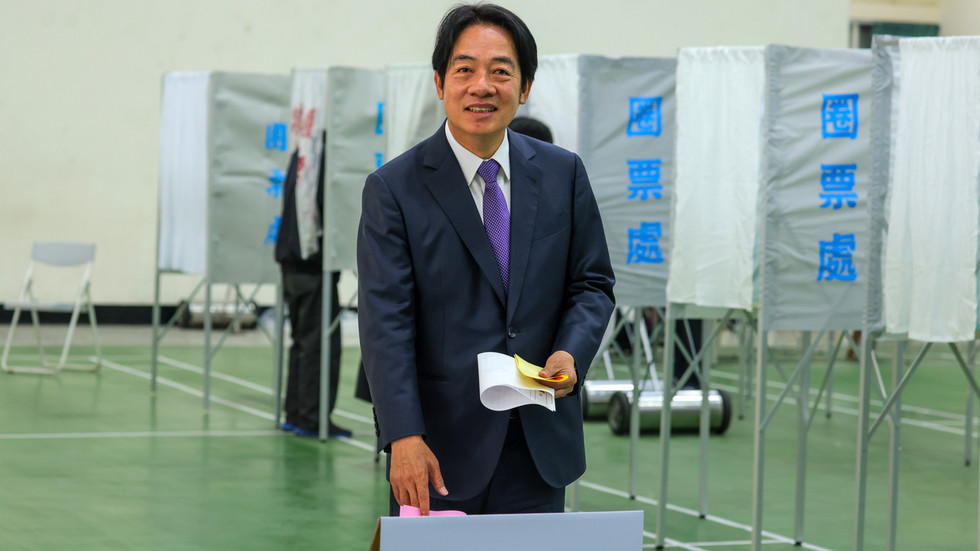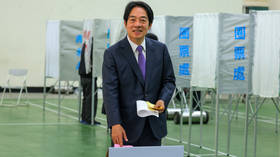
Vice President Lai Ching-te is to become the self-governing island’s new leader following Saturday’s election

Taiwan’s Vice President and presidential candidate for the ruling Democratic Progressive Party (DPP) Lai Ching-te casts his ballot to vote on January 13, 2024 in Tainan, Taiwan © Getty Images / Annabelle Chih/Getty Images
Lai Ching-te of Taiwan’s ruling Democratic Progressive Party (DPP) has been elected as the self-governing island’s new leader following Saturday’s presidential election.
Lai, who entered the election as Taiwan’s vice president, claimed victory after the candidate representing the island’s main opposition party, Hou Yu-ih, conceded defeat.
The DPP, which was seeking a third term in power, rejects Chinese sovereignty over Taiwan and maintains that the island has the right to a separate identity from mainland China. Lai has said he is determined to preserve peace across the Taiwan Strait, but has called for boosting the self-governing territory’s defences, to ward off possible threats from Beijing.
Lai was declared the victor after partial results showed that he had gained 40.2% of the vote, prompting Hou – as well as former Taipei mayor, Ko Wen-je of the Taiwan People’s Party – to withdraw from the race. Incumbent Taiwanese President Tsai Ing-wen is constitutionally prohibited from seeking a third term in office.
“Every vote is valued, as this is Taiwan’s hard-earned democracy,” Lai said in the southern city of Tainan on Saturday before casting his vote, according to Reuters.
The Chinese government has described Lai as a separatist, and has rejected his calls for talks over Taiwan’s future. His rival, Hou, has accused Lai of supporting Taiwanese independence – while Lai claims that Hou holds pro-Beijing positions, which Hou denies.
Ko, whose Taiwan People’s Party has appealed to the island’s youth vote since it was established in 2019, has focused more on domestic issues, such as housing costs. However, while he has said he wants to re-engage with China, he has stressed that this cannot infringe on Taiwan’s own democratic goals.
DETAILS TO FOLLOW




